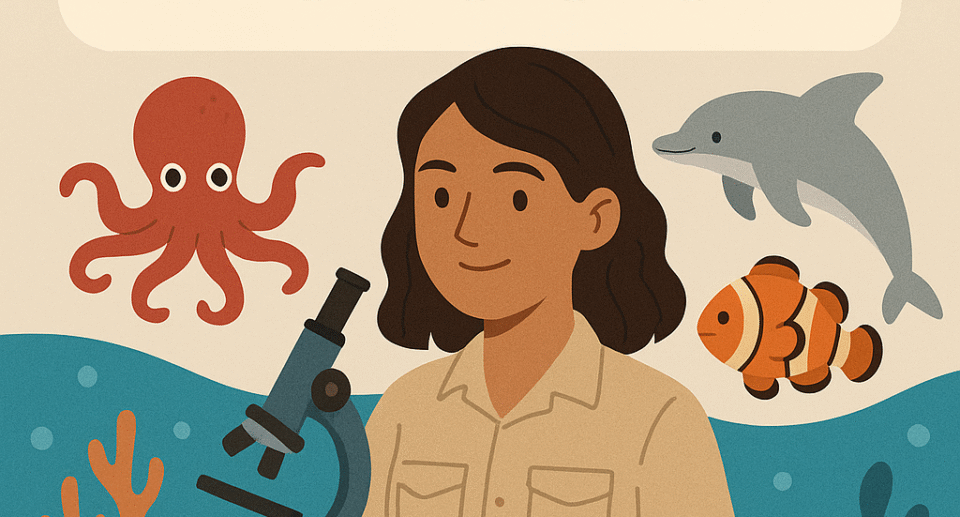How to Become a Marine Biologist

Marine biology is a fascinating field that allows you to explore the mysteries of the ocean and its vast array of life forms. From studying colorful coral reefs to researching massive whale migrations, marine biologists have the opportunity to uncover secrets of underwater ecosystems. If you are passionate about the ocean and science, becoming a marine biologist might be the perfect career path. Here’s a step-by-step guide to help you get started.
1. Understand the Role of a Marine Biologist
Before diving into this career, it’s important to fully understand what marine biologists do. Their duties are diverse and can vary greatly depending on their area of specialization.
- Research: Conducting studies on marine organisms, ecosystems, and environmental factors affecting the ocean.
- Fieldwork: Traveling to oceans, seas, estuaries, and even polar regions to collect data and samples.
- Conservation Efforts: Working with organizations to protect endangered marine species and habitats.
- Education and Outreach: Teaching, publishing research findings, and raising public awareness about marine conservation.
Knowing the range of responsibilities will help you focus on which area you want to pursue.
2. Educational Requirements for Marine Biology
Becoming a marine biologist typically starts with earning a bachelor’s degree in marine biology, biology, oceanography, or a related field. During undergraduate studies, you will take courses in marine science, ecology, chemistry, physics, and statistics.
For higher-level positions, particularly in research or academia, a master’s degree or Ph.D. is often required. Advanced degrees allow you to specialize in fields like marine mammalogy, ichthyology (study of fish), or marine conservation. Hands-on experience through internships, lab work, and field studies is just as critical as classroom education.
3. Important Skills Needed to Succeed
Marine biology is not just about loving the ocean; specific skills are essential to excel in the field:
- Observation Skills: Paying close attention to the behavior and patterns of marine life.
- Problem-Solving Abilities: Finding solutions to environmental and ecological challenges.
- Technical Skills: Using advanced technology like sonar, underwater drones, and GPS mapping tools.
- Communication Skills: Writing reports, publishing research, and conveying information clearly to both scientific and general audiences.
- Physical Stamina: Fieldwork can be physically demanding, often involving diving, swimming, and working in challenging environments.
Developing these skills early will set you apart in this competitive career field.
4. Choose a Specialization Within Marine Biology
Since marine biology is such a vast field, specializing can help you focus your career and research efforts. Some popular specializations include:
- Marine Ecology: Studying how marine organisms interact with each other and their environments.
- Marine Biotechnology: Applying marine organisms to develop new technologies and medicines.
- Marine Mammalogy: Focusing on the study of whales, dolphins, seals, and other marine mammals.
- Fisheries Biology: Researching fish populations and sustainable fishing practices.
- Marine Conservation: Protecting ocean environments and endangered species through advocacy and research.
Your specialization can guide your education, internships, and job opportunities in the future.
5. Gain Field Experience
Practical experience is crucial for aspiring marine biologists. Employers often look for candidates who have real-world experience working with marine life and oceanic systems. Here’s how you can gain that valuable experience:
- Internships: Apply for internships at aquariums, marine research institutions, or conservation organizations.
- Volunteer Work: Participate in beach cleanups, coral reef restoration projects, or wildlife rescue programs.
- Field Courses: Enroll in university-led field courses that offer diving certifications and hands-on research experience.
- Research Projects: Assist professors or marine biologists with ongoing research to build your resume and skills.
These experiences not only make you more employable but also help you discover which aspects of marine biology you are most passionate about.
6. Build a Strong Professional Network
Networking is a vital part of building a successful career in marine biology. Establishing strong connections with professionals in the field can open doors to valuable opportunities that might not be publicly advertised. The relationships you build early in your career can lead to internships, research assistant positions, and full-time jobs.
Attending scientific conferences, workshops, and seminars is one of the best ways to grow your network. These events bring together marine biologists, researchers, and students from all over the world, giving you a chance to learn about the latest discoveries and trends while meeting potential mentors and collaborators.
Joining professional organizations can also strengthen your network. Groups like the Society for Marine Mammalogy and the Marine Biological Association offer memberships that provide access to newsletters, job boards, and networking events. Being active in these communities keeps you informed about new research and career opportunities.
Maintaining your network is just as important as building it. Stay in touch with the people you meet by following up after events, connecting on professional platforms, and sharing relevant articles or research updates. A strong, active network can be one of your greatest assets as you grow your career in marine biology.
7. Obtain Necessary Certifications
To succeed as a marine biologist, earning the right certifications is crucial. A strong foundation in practical skills can make a big difference when working in challenging marine environments. Certifications show that you are trained, capable, and ready to handle the demands of fieldwork and research.
A scientific diving certification from organizations like the American Academy of Underwater Sciences (AAUS) is often required for underwater research. This training covers diving safety, underwater data collection, and emergency procedures. Having this certification can open doors to exciting projects such as deep-sea exploration, coral reef studies, and underwater ecosystem monitoring.
Beyond diving, certifications in first aid and CPR are highly recommended, especially for research in remote areas. Some roles may also require a boat operation license or training in marine wildlife handling. These additional skills improve your safety and make you a more competitive candidate for marine biology positions.
8. Understand the Work Environment
Marine biologists work in diverse environments, including universities, government agencies, private research firms, aquariums, and nonprofit organizations. Some jobs involve frequent travel and long periods at sea, while others are based in laboratories analyzing data. Fieldwork can sometimes be physically demanding and requires patience, particularly when observing animals in their natural habitats.
Salaries for marine biologists vary depending on education, experience, and employer. According to the U.S. Bureau of Labor Statistics, biological scientists, which includes marine biologists, have a median salary around $75,000 per year. However, entry-level marine biologists often start with lower salaries, especially in nonprofit or research roles, before progressing to higher-paying positions.
9. Challenges and Rewards of a Marine Biology Career
While the idea of working with dolphins and exploring coral reefs is appealing, marine biology also comes with significant challenges:
- Funding Limitations: Many research projects depend on grants, which can be highly competitive and uncertain.
- Physical Demands: Long hours at sea, diving, and harsh weather conditions can be tough.
- Job Competition: The field is very competitive, so persistence and a willingness to relocate can be important.
- Environmental Impact: Witnessing the decline of marine ecosystems due to pollution and climate change can be emotionally difficult.
Despite these challenges, the rewards are immense. Marine biologists contribute valuable knowledge that can lead to conservation efforts, environmental policies, and greater public awareness about the ocean’s health.
10. Final Thoughts
Pursuing a career in marine biology requires passion, dedication, and a strong academic and practical background. From studying tiny plankton to massive whales, marine biologists play a crucial role in understanding and protecting our oceans. It’s a career filled with adventure, discovery, and the chance to make a meaningful difference in the world. If you’re fascinated by the mysteries of the deep and committed to protecting marine life, marine biology can offer a lifelong, fulfilling journey.









